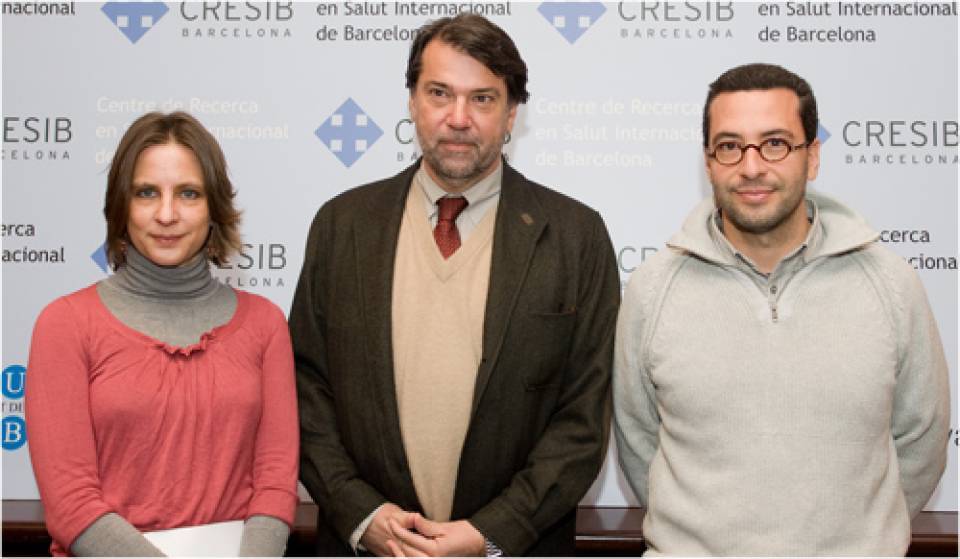malERA was established due to the appeal to eradicate malaria during the Malaria Forum organised by the Bill & Melinda Gates Foundation in October 2007. Its initail hypothesis was that with the available tools in that moment, it would be possible to achieve significant advances in the reduction of the number of clinical cases and deaths caused by the malaria parasite and even the elimination of the disease in some regions, but the global eradication would still be beyond our range. As such, a consultation process of such that has never been seen before was put into action which involved the main experts in the field of investigation into malaria and other fields with the end aim of jointly identifying the research and development priorities that reflect a fundamental change of paradigm: from one focused on reducing the mortality and morbidity of malaria, the traditional objective of control strategies, to another where the aim is to interrupt the transmission of the parasite which causes malaria, bringing about its complete eradication.
It is not the first time that the International community has aimed at this objective. In 1955 the World Health Organization implemented the Global Malaria Eradication Programme (GMEP), but 14 years later admitted that the objective was unattainable with the tools that were available at the time. Today Malaria continues to be endemic in 106 countries and despite the huge leaps forward made in the last few years, in 2009 it caused an estimated number of 781.000 deaths.
The malERA initiative, started in 2008 under the direction of a Directive Committee, made up of 14 internationally renowned scientists. In addition to that its government organs were provided with an international advisory committee, led by Myron M Levine, that included experts from previous campaigns for eradication and elimination of malaria and other diseases as well as a council of international leaders made up of Dr. Margaret Chan, Director General of the World Health Organisation, Dr. Tadataka Yamada, President of the Global Health Program of the Bill & Melinda Gates Foundation, Dr. Anthony S Fauci, Director of the National Institute of Allergy and Infectious Diseases (USA), Dr. Mark Walport, Director of the Wellcome Trust and Dr. Awa Coll- Seck, Executive Director of the Roll Back Malaria Partnership Board. The financing to realise the work came from a donation from the Bill & Melinda Gates Foundation.
The Technical Secretary of the malERA was based in the Centro de Investigación en Salud International of Barcelona (Hospital Clinic-UB) whose Director, Dr. Pedro L. Alonso presided over the Directive Committee that guided the process. The role of the CRESIB as co-ordinator of this global effort put Hospital Clinic of Barcelona and the University of Barcelona and not for the first time, in the epicentre of the investigation in the fight against malaria.
MONOGRAPH in PLoS Medicine
The effort of two years of consultations has given fruit to a monograph of 12 articles published tomorrow in the Journal PLoS Medicine, made up of 3 pieces of analyses and nine research and development agendas. The introduction puts the malERA initiative into context, whilst the agendas define the areas of research and development for 8 themed subjects: basic science and technologies for investigation; medicines, vaccinations, vector control, health systems and operative investigation; mathematic models; diagnosis and monitoring, evaluation and epidemiology vigilance. An additional article identifies the transversal research needs. The whole work is complemented by two historic articles which exposed the lessons learnt from previous campaigns in the elimination and eradication of not just malaria but also other diseases.
The eradication of Malaria is one of the greatest challenges facing science and global public health. It is certainly an ambitious objective, and according to the conclusions of malERA, will only be reached by the new generation of young scientists if the research into the various different fields starts now.
Some examples of the critical needs in the field of research against Plasmodium falciparum and Plasmodium vivax are:
- In Vitro cultures and the study of the hipnozoitos (persistent state of the parasite in the liver) of Plasmodium vivaz, an ignored species that causes malaria in humans.
- New drugs appropriate for administration campaigns at a local level which permits not just the complete elimination of infection but also protects against new infections.
- Vaccinations directed to work against the different stages of the parasites life-cycle, or against the mosquito with the principal objective of interrupting transmission.
- New approaches to the vector control (i) mosquitoes that eat and sleep outside and (ii) aim of permanently reducing the vectoral capacity in areas where transmission is overall the highly efficient vector A.gambiae.
- New approaches to rapid and accurate evaluation of the transmission at a grassroots level.
- Tools to scientifically evaluate if the health system is ready for the transition to realise these elimination efforts.
- New collaborative approaches to use mathematic models in order to orientate the defining of profiles of the desired products and the results hoped for with the different combination of interventions.
- More powerful tools for monitoring and evaluation, and strategies to interrupt the transmission which are closely linked to social systems and health.

